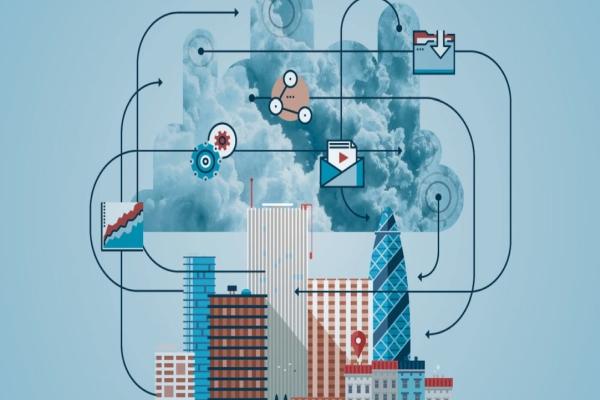Published on the 25/10/2017 | Written by Newsdesk

Blockchain leads the charge of technologies which will change the world…
Blockchain, together with artificial intelligence, machine learning, robotics, and virtual and augmented reality, have the potential to deliver disruptive outcomes and reshape digital business in 2018. And companies that have not started the digital investment cycle are at high risk of being disrupted.
That’s according to Dimension Data’s IT predictions for 2018. The systems integrator singled out blockchain as the biggest trend to watch, describing the distributed database technology as having ‘immense potential to disrupt and transform the world of money, business, and society using a variety of applications’.
In a statement, Ettienne Reinecke, DD’s Group CTO, said blockchain is on the march. “Last year, when we looked at the top digital business trends for 2017, we predicted that centralised transaction models would come under attack. We were spot on. In the financial services sector, we’ve seen the US and European capital markets moving onto blockchain platforms, and similar activity in markets such as Japan. Considering how conservative and compliance-focused this sector is, that’s quite remarkable.”
Reinecke described as ‘ironic’ cybercriminals behind the WannaCry ransomware attack holding a federal government to ransom and demanding to be paid in Bitcoin. “Bitcoin might be a crypto-currency, but it’s based on Blockchain, and if cybercriminals are confident that Bitcoin provides a safe mechanism for the payment of ransoms, it indicates just how secure the distributed ledger approach is.”
As a result, he said blockchain has the potential to ‘totally re-engineer cybersecurity’. “But the industry has yet to come to terms with it.”
Reinecke expects blockchain will make a reality of the Internet of Things (IoT) in the year ahead. “In IoT you’re generating millions of small transactions being collected from a distributed set of sensors. It’s not feasible to operate these systems using a centralised transactional model: it’s too slow, expensive, and exclusive.”
Extracting value from IoT, he said, depends on real time operations. “Once a sensor alert is received from a control system you must react to it, meter it, and bill for it instantly – all of which negates the viability of a centralised transactional authority. The cost of the transaction has to be near-zero or free, and the cost elements of a centralised model simply don’t support the potential business model in IoT,” he explained.
Another trend is the boom in wireless technologies that will enable IoT and bring pervasive connectivity closer. Some of these advancements will include 5G and Gbps Wi-Fi, virtual beacon technology, and low power, long distance radio frequency.
Reinecke said there is a “digital fight-back” coming on the part of ‘certain incumbent players’. Explaining, he said established businesses that have proactively transformed into digital businesses, modernised their architectures, and embedded high levels of automation into their operations, have a window of opportunity to claw back market share in the year ahead. ‘That’s because there’s been an increase in the number of cloud-born start-ups themselves starting to be disrupted in certain industries’.
“A number of digitally transformed incumbents will successfully start reclaiming their markets because they have more credibility, longer histories, an established customer base, and assets that can stand the test of time,” he said.



























